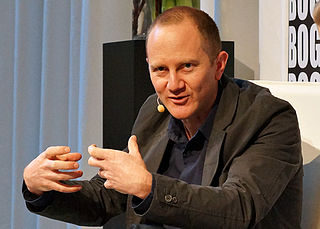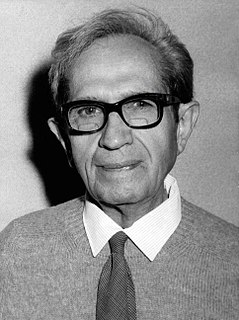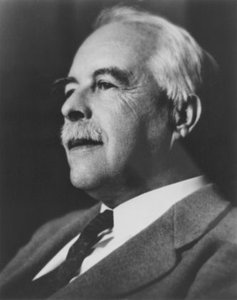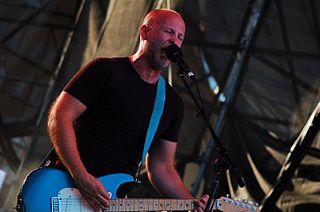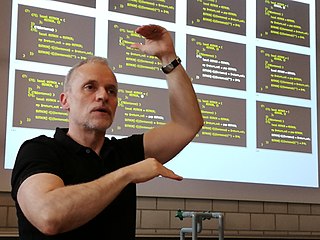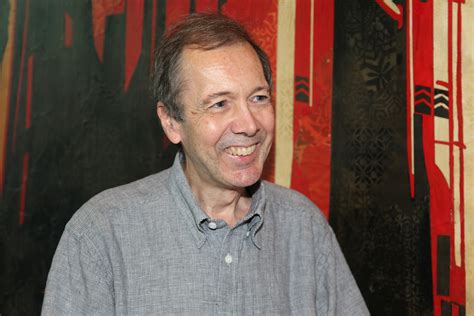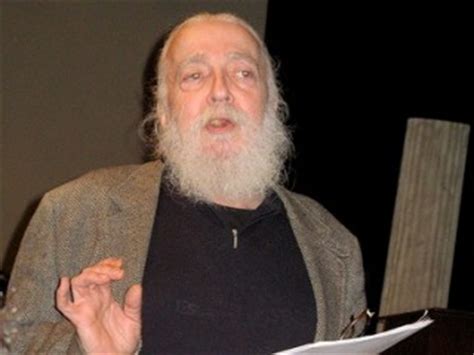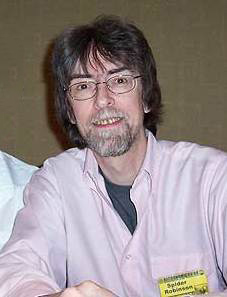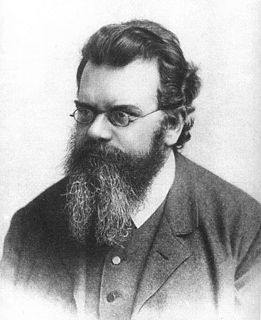Top 132 Entropy Quotes & Sayings - Page 2
Explore popular Entropy quotes.
Last updated on April 15, 2025.
I'm trying to understand cosmology, why the Big Bang had the properties it did. And it's interesting to think that connects directly to our kitchens and how we can make eggs, how we can remember one direction of time, why causes precede effects, why we are born young and grow older. It's all because of entropy increasing.
I find the big bang, really quite fascinating. I mean, here you have all these highfalutin scientists and they're saying it was this gigantic explosion and everything came into perfect order. Now these are the same scientists that go around touting the second law of thermodynamics, which is entropy, which says that things move toward a state of disorganization.
There are two ways to look at life. The first view is that nothing stays the same and that nothing is inherently connected, and that the only driving force in anyone's life is entropy. The second is that everything pretty much stays the same (more or less) and that everything is completely connected, even if we don't realize it.
What do we measure when we measure time? The gloomy answer from Hawking, one of our most implacably cheerful scientists, is that we measure entropy. We measure changes and those changes are all for the worse. We measure increasing disorder. Life is hard, says science, and constancy is the greatest of miracles.
We all have those times in relationships, whether it's work or personal or family or whatever it is, where there's something that's eating at you and eating at you, and you want to say it to the person that you care about the most, but you're so afraid it's going to destroy everything. Like the fear of destruction keeps one from saying what they want to say - when, in actuality, by not saying it, things get worse. Because it's the entropy, the leak that doesn't get fixed.
Ordinarily my mom just sunk deeper into her corner of the couch and ignored it. She had succesfully ignored a quarter of a century of entropy and decay, had sat peacefully crunching popcorn and drinking soda while the house fell down around us. If I had to guess the number of books she read during that time, I would place the number at somewhere in the neighborhood of forty thousand.
Entropy is one of the laws of thermodynamics. It's a physical law that says everything in nature is moving from order to disorder. In our lives this same principle is at work. As time moves on, things break down as we make mistakes. This is the 'letdown' every person experiences because of sin. For Christians this concept doesn't end there because we realize God's 'beautiful' mercy and grace restores the order in our lives.
You know, entropy is associated thermodynamically, in systems involving heat, with disorder. And in an analogous way, information is associated with disorder, which seems paradoxical. But when you think about it, a bit of information is a surprise. If you already knew what the message contained, there would be no new information in it.
Consciousness, when it's unburdened by the body, is something that's ecstatic; we use the mind to watch the mind, and that's the meta-nature of our consciousness; we know that we know that we know, and that's such a delicious feeling, but when it's unburdened by biology and entropy, it becomes more than delicious: it becomes magical.
What's important is how we use our time on this earth, not how conspicuously we give our money away. What's important is the energy and courage we are willing to expend reversing entropy, battling cynicism, suffering and challenging mediocre minds, staring down those who would trample our dreams, taking a stand for magic, and advancing the potential of the human race.
The general struggle for existence of animate beings is not a struggle for raw materials, these for organisms are air water & soil, all abundantly available, nor for energy which exists in plenty in the sun and any hot body in the form of heat, but rather a struggle for entropy, which becomes available through the transition of energy from the hot sun to the cold earth.
Consciousness, when its unburdened by the body, is something thats ecstatic; we use the mind to watch the mind, and thats the meta-nature of our consciousness; we know that we know that we know, and thats such a delicious feeling, but when its unburdened by biology and entropy, it becomes more than delicious: it becomes magical.
It's really hard to design products by focus groups. A lot of times, people don't know what they want until you show it to them. As Henry Ford said many years earlier: "If I had listened to my customers, I would have built a faster horse." Inventions in general express Shannon entropy. They come from the supply side.
Professor Eddington has recently remarked that 'The law that entropy always increases - the second law of thermodynamics - holds, I think, the supreme position among the laws of nature'. It is not a little instructive that so similar a law [the fundamental theorem of natural selection] should hold the supreme position among the biological sciences.
i learned that predators don't intentionally choose the weak or old or sick. they kill what they can, which means the slow members of the pack. thus, they strengthen the very gene pool they're feeding from. the threshold for what is weak, old or sick gets raised, and the strength, speed and instincts of new generations of hunters grow. a beautiful, self-perpetuating system where evolution is the antithesis of entropy.
[My] pictures are about memory and forgetfulness. The evidence is dissolving. Bones crumble; human ash returns to soil; teeth, sandals, hair, bullets, axes disperse into atoms and molecules. Footprints in the snow will be erased by the next storm. The evidence of evil, like the evidence of good, obeys the universal laws of entropy. Heat cools, matter disintegrates, memories fade. If we let them.




